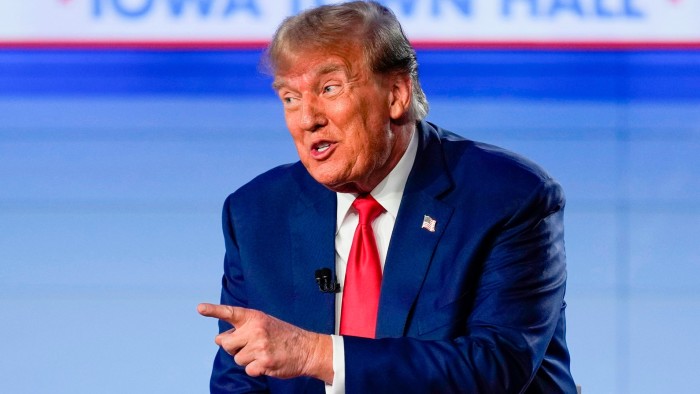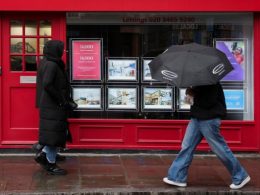Unlock the White House Watch newsletter for free
Your guide to what the 2024 US election means for Washington and the world
Donald Trump will face sentencing over his New York “hush money” conviction on Friday, after the US Supreme Court declined to grant him a last-minute reprieve.
The decision will force the president-elect to face public proceedings in the criminal case that he has fought strenuously to avoid. His lawyers had appealed to the high court on Wednesday to postpone the proceeding, claiming that allowing it to go ahead days before his inauguration would create a “constitutionally intolerable risk of disruption to national security” and interfere with his efforts to get his 34 felony convictions overturned.
In a 5-4 decision handed down just hours before the sentencing was set to go ahead in a state court in lower Manhattan, a majority of the justices declined to do so, saying “the burden that sentencing will impose on the president-elect’s responsibilities is relatively insubstantial” especially as Trump was unlikely to face any prison time. They added that any issues with the evidence presented at trial — some of which Trump’s lawyers have claimed was inadmissible — “can be addressed in the ordinary course on appeal”.
Trump-appointed Justice Amy Coney Barrett joined Chief Justice John Roberts and the three liberals on the bench in refusing to grant Trump’s appeal.
Trump’s sentencing was repeatedly postponed while he mounted his third campaign for the White House and pursued various appeals against his conviction. Last week Judge Juan Merchan, who oversaw the “hush money” trial in New York earlier this year, finally set a firm date, in order to bring what he called “finality to this matter”.
Trump will probably not face any punishment when he is sentenced, however, as the judge previously indicated he would not impose a fine or condemn Trump to prison time.
Lawyers for Trump have nonetheless tried to get the proceeding postponed further or cancelled entirely, appealing first to Merchan, then to a higher New York court, and, after being swiftly rebuffed by both, to the Supreme Court.
Trump’s lawyers have claimed the Supreme Court’s decision earlier this year to grant presidents broad immunity for official acts meant the case should be stayed or dismissed, and sentencing him with such “haste” would lead to “irreparable harm”.
The hush money case is one of four criminal cases brought against Trump following his first term, and the only one to advance to trial. Last year, following a seven-week trial in New York state court, he was convicted on 34 felony counts of falsifying business records in what prosecutors alleged was a scheme to buy the silence of a porn actor, Stormy Daniels, with whom he had an affair. It was the first time a former president was convicted of a crime.
Source link









